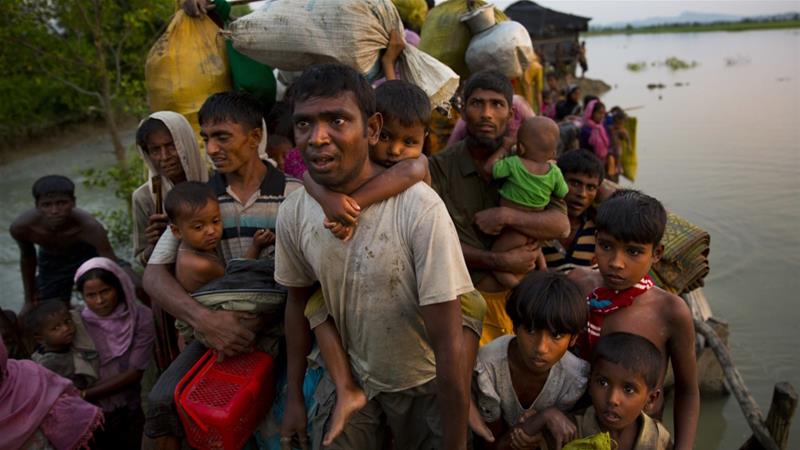![UN official: Rohingya camps at risk of deterioration Rohingya Muslims carry their children and belongings after crossing the border from Myanmar into Bangladesh in November [The Associated Press]](http://www.aljazeera.com/mritems/imagecache/mbdxxlarge/mritems/Images/2017/12/29/eb6d17eee55849d38b241fa739e2906c_18.jpg)
Humanitarian conditions in camps hosting Rohingya refugees in Bangladesh are set to worsen in the next few months, a human rights investigator has told Al Jazeera, while also raising concerns about a plan to repatriate the fleeing minority back to Myanmar.
In an interview from Balukhali refugee camp in Cox’s Bazar, Yanghee Lee, a UN special rapporteur who was banned from visiting Myanmar, said that with Bangladesh’s monsoon season approaching, the crammed camps “will be witnessing landslides and we may see a huge number of casualties”.
Lee also warned of the possibility of an “outbreak of diseases” that would spread due to heavy rainfall, which may become “impossible to contain from spreading elsewhere”.
The UN envoy was to visit Myanmar in January to assess the state of human rights across the country, including in Rakhine state, where a brutal military crackdown has sent more than 650,000 minority Rohingya fleeing into neighbouring Bangladesh.
People fleeing the violence have told of a systematic campaign of mass killings, rape and arson. The UN has described the situation as “a textbook example of ethnic cleansing”.
Lee took up the rights monitoring role in 2014, and is required to visit Myanmar two times a year in order to report to the Human Rights Council and the UN General Assembly.
She was banned last month from conducting her investigation.
‘It’s just not human’
In the interview with Al Jazeera, Lee urged the international community to aid in dispersing the overcrowded camps in Bangladesh.
“The concentration of people … it’s just not human”.
As part of the repatriation deal signed by the two Asian neighbours in November last year, Bangladesh and Myanmar officials agreed last week on plans to facilitate the return, over the next two years, of those displaced.
Some 1,550 refugees will be sent back each week, which will add up to approximately 156,000 over a period of two years.
But Lee said the situation in Myanmar is not conducive for refugees to return.
“First of all, where would they go back to? They’ve lost their livelihood, they’ve lost their crops, they’ve lost their fields,” she told Al Jazeera.
“All the rice now is reportedly being sold elsewhere to other countries. They’ve lost their homes, so the rebuilding process is going to be huge, and the people should not be subjected to living in another camp-like situation.”
She also urged that the return of any refugees to their homes be entirely voluntary, stressing there needs to be “informed consent … so they will know exactly what they are going back to”.
The current Rohingya crisis started in August, when Myanmar’s army launched a bloody crackdown in response to attacks on border posts by the armed group, the Arakan Rohingya Salvation Army.
The mainly Muslim minority, living primarily in Rakhine State, is not recognised as an ethnic group in Myanmar, despite having lived there for generations. They have been denied citizenship and are rendered stateless







